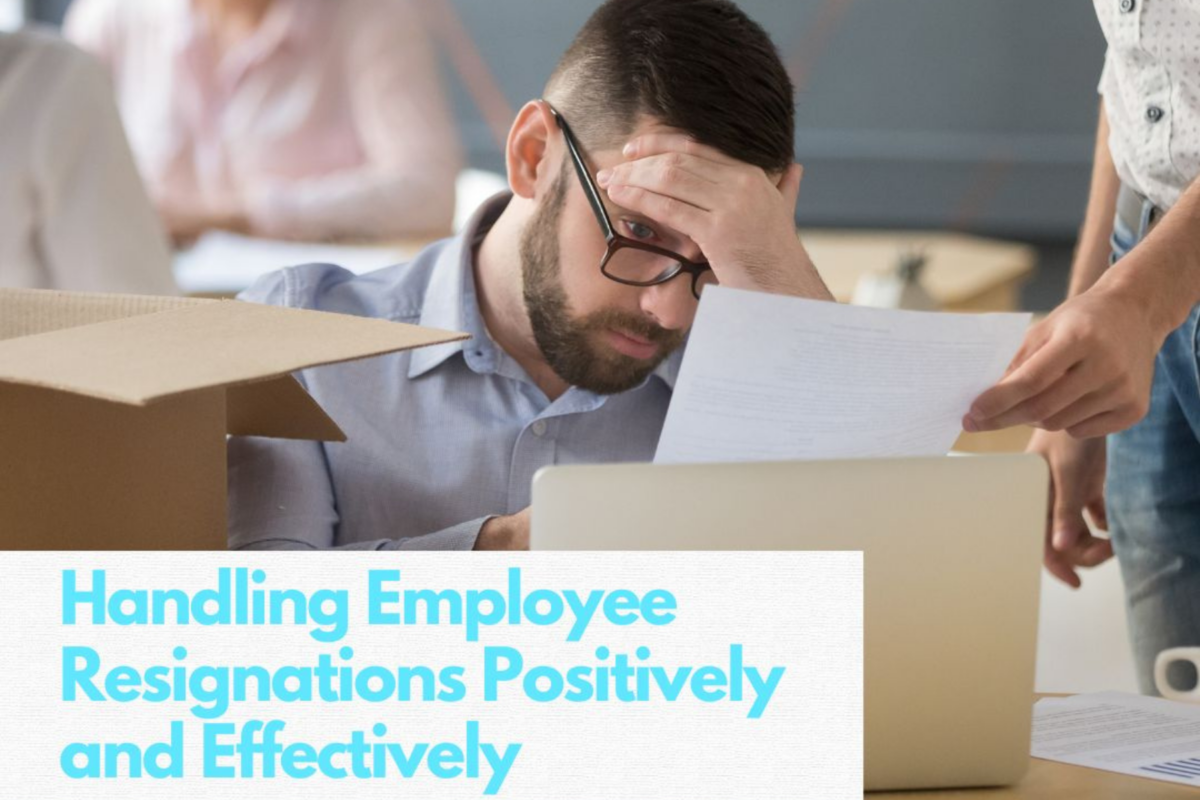In the fast-paced and demanding world of healthcare, every member of the team plays a crucial role in ensuring optimal patient


Employee resignations are an inevitable part of every organization. No matter how much you may want to keep your staff, there will come a time when someone decides to move on. Whether it’s due to personal reasons, career advancement, or dissatisfaction with their current role, resignations can be challenging for both the employee and the employer. However, it’s essential to handle resignations positively and effectively to maintain a good reputation and a healthy work environment. In this blog, we will discuss some tips on how to handle employee resignations in a positive and effective way.

When an employee resigns, the first thing to do is to create a positive and supportive atmosphere. The employee may be leaving due to a better opportunity, personal reasons, or any other factor. Whatever the reason may be, it’s important to show understanding and empathy. Acknowledge the employee’s contributions to the organization and thank them for their service. Express your support for their decision and ask how you can assist them during the transition period. This approach shows that you value their work and want to maintain a positive relationship even after they leave.
When an employee resigns, it’s essential to show understanding and support. Sometimes, resignations may come as a surprise, and you may be caught off guard. However, it’s important not to react negatively or emotionally. Instead, take a deep breath, and listen to the employee’s reasons for resigning. Show empathy and offer support if possible. For instance, you can offer to write a reference letter or provide a positive recommendation. By doing this, you show the departing employees that you value their contributions and that you support their decision to move on.
Exit interviews are a valuable tool for organizations to gather feedback from employees who are leaving. The feedback can help the organization identify areas of improvement and address any issues that may be affecting employee retention. When conducting an exit interview, be sure to ask open-ended questions that encourage honest feedback. Listen attentively and take notes, so you can share the feedback with management and implement any necessary changes.
Some questions you could ask include:
When an employee resigns, it’s important to plan for the transition to minimize disruptions to the business. Depending on the role, it may take some time to find a replacement or to train someone else to take on the responsibilities. During this period, it’s important to ensure that the departing employee’s workload is adequately covered, and that there is no loss of productivity or quality. You could consider delegating the work to other employees or hiring temporary staff until a replacement is found. It’s also essential to ensure that the departing employee’s knowledge and expertise are captured and documented to facilitate the transition.
Moreover, consider planning a handover process to transfer knowledge and expertise to the new employee who will be taking over the role. This process can include regular meetings with the departing employee to discuss ongoing projects, key responsibilities, and any other relevant information that could assist the new employee.
Just because an employee is leaving doesn’t mean that the relationship has to end on a sour note. It’s important to maintain a positive relationship with departing employees as they can become valuable brand ambassadors or potential future hires. You could consider organizing a farewell event or sending a thoughtful gesture such as a gift card or a handwritten note to show your appreciation for their contributions. Additionally, staying in touch through LinkedIn or other social media platforms can help you keep track of their career progress and maintain a positive connection.
Employee resignations are inevitable, and while they can be challenging, they also present an opportunity for organizations to reflect, improve and maintain positive relationships. By handling resignations positively and effectively, employers can create a healthy work environment, maintain a good reputation, and potentially even benefit from future opportunities. Remember to be understanding and supportive, conduct exit interviews, plan for the transition, and maintain a positive relationship. With these tips, you can handle employee resignations in a way that benefits everyone involved. Remember, resignations are a normal part of the business, and by handling them professionally, you can build a reputation as an employer that values and respects its employees. For more useful resources, visit MLee Healthcare.